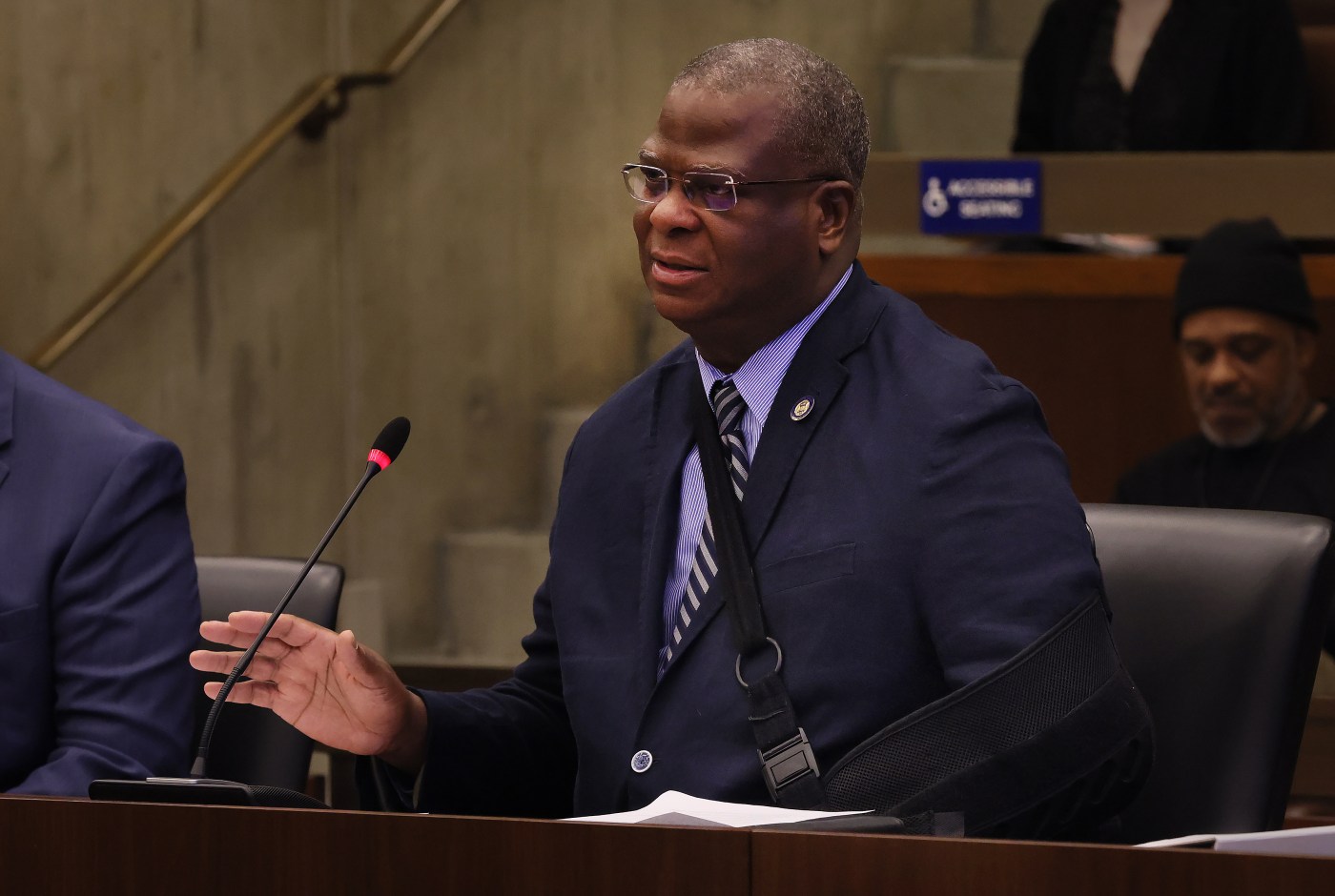
Boston City Council grills police commissioner about ShotSpotter technology
Boston’s police chief said he won’t delay signing a new contract for continued use of ShotSpotter technology that “saves lives,” shrugging off concerns from city councilors around its effectiveness and perceived overuse in communities of color.
ShotSpotter, which places sensors that detect audio aimed at transmitting the sound of gunshots quickly to garner a rapid police response, was subject to some of the most pointed scrutiny at a Monday City Council hearing on the police budget — given an April ACLU report that found the technology to be ineffective and racially biased. The city’s contract for the equipment expires next month.
“ShotSpotter is a really important technology that we have and use,” Boston Police Commissioner Michael Cox said. “It’s how we stay safe. It’s very, very important to how we deploy and address certain neighborhoods and issues and crime.”
Cox said the technology is useful in prosecution and reenactment of a crime, particularly in instances where shots are fired late at night and people in the area don’t call 911.
Several councilors weren’t convinced, however, pointing to a report released last month by the American Civil Liberties Union, that, citing public records from the Boston Police Department, found that nearly 70% of ShotSpotter alerts resulted in no evidence of gunfire from 2020-22.
The ACLU further contended that the same city records showed the technology was mostly used in communities of color, particularly in Dorchester and Roxbury.
Related Articles
Boston City Councilor Ed Flynn says he won’t run for mayor in 2025
Seaport migrant shelter seeks extension through June: What about Roxbury rec center?
Boston city councilor breaks bread with North End restaurateurs suing Mayor Wu
Boston Chamber chief urges City Council to rein in Mayor Wu’s spending amid economic uncertainty
Boston city councilors wrestle over how to declare support for local Jews
The report makes the case for the city ending its relationship with ShotSpotter, pointing to an instance where the technology was set off by a piñata at a birthday party, an incident that Cox described as being “sensationalized” by the ACLU when it was alluded to by City Council President Ruthzee Louijeune.
“I don’t think piñatas are the driver of ShotSpotter calls in general,” Cox said, adding that he’s found the technology to be fairly accurate and something that notifies police faster than a 911 call, which “saves lives.”
Louijeune was among the councilors calling for a cost benefit analysis, however questioning whether the “many false positives” make the contract worth renewing.
“You mentioned that ShotSpotter saves lives and that you are in the business of public safety, and I think that’s right,” Louijeune said. “It always needs to be balanced against civil liberties.”
The city’s three-year contract with SoundThinking, a California-based company that produces ShotSpotter, is set to expire in June. A publicly-posted copy of the document shows the cost of that agreement to be $782,610. A BPD spokesman did not confirm.
Cox said he wouldn’t be willing to hold off on signing a new agreement, when Councilor Benjamin Weber suggested a delay until the Council could hold a hearing on what other cities have done to respond to similar concerns.
More than 150 cities across the country use the technology, but major cities including Chicago, Atlanta, and Portland, Oregon have decided against its use, with city officials describing it as “expensive, racially biased and ineffective,” CNN reported in February.
“I would not be willing to delay a tool that will save lives in the city,” Cox said.


